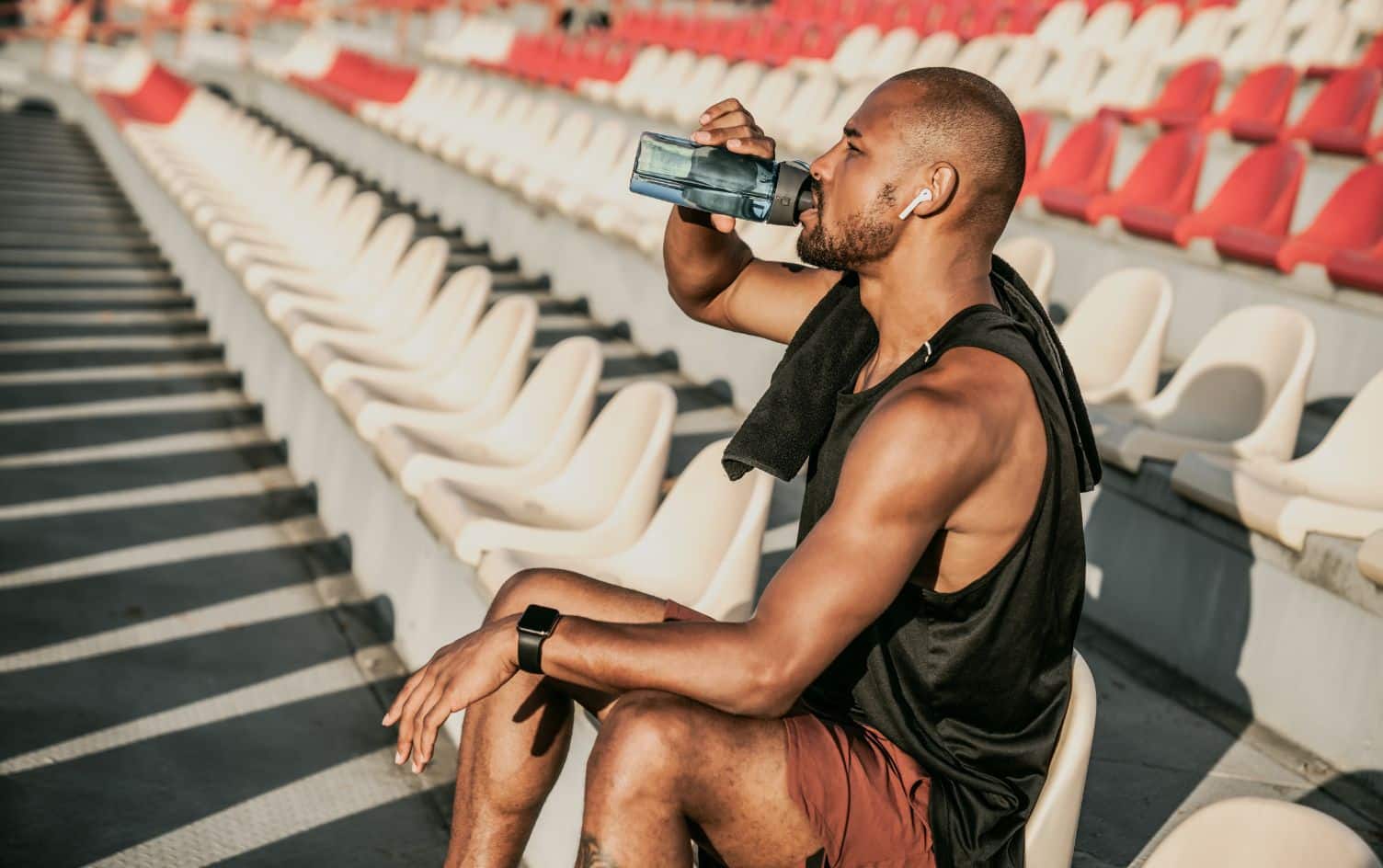It’s not uncommon to see exercise junkies chug a big protein shake immediately after their workout in the hopes of making fitness gains.
But do you really need to prioritize post-workout protein to make progress?
Well, yes and no.
WHAT KIND OF WORKOUT WAS IT?
First of all, it depends on the type of workout. “If it was a harder, longer, performance-based workout, then absolutely, [prioritizing post-workout protein is] super important,” says Susan Kitchen, MPH, a board certified specialist in sports dietetics. Think: high-intensity interval workouts, sessions lasting longer than 90 minutes and hypertrophy-focused (muscle-building) strength routines. On the other hand, short, low-intensity sessions don’t require you to rush to your next meal unless you’re already hungry.
CONSIDER A CARB TO PROTEIN RATIO
Second, it’s actually more important to refuel with a combination of carbs and protein after an intense workout, as opposed to simply prioritizing protein. In fact, you’ll want your recovery snack to be a ratio of 4:1 or 3:1 of carbs to protein. “Your body just needs a little bit of protein to kick-start recovery,” Kitchen says. “What fuels that process of helping the muscles to recover is carbohydrates.”
See, your body primarily burns carbs (in the form of glucose and glycogen) for energy during long and higher-intensity exercise, whereas protein is needed for longer-term muscle repair and maintenance. “Think of the body like a car,” Kitchen says, “where protein is the oil and carbs are the gas that make the body run.”
If you want to maximize the benefits of a long or intense workout, you need to get carbs and protein into your system ASAP.
“You’ve got this 15- to 30-minute window of opportunity where the enzymes that your body makes to pull the carbohydrate into your muscles to fuel your next workout are peaking,” says Hana Abdulaziz Feeney, MS, RD, founder of Arizona-based nutrition consulting company Nourishing Results. If you miss out on the window of opportunity to get that ideal ratio of protein and carbs, you won’t get as much recovery benefit from your post-workout meal, as those enzymes are no longer able to pull carbs into your muscles as efficiently. What’s more, starving your muscles and tissues of much-needed glycogen post-workout places your body in a stressful situation, because you’re not giving it the tools it needs to repair.
IS PROTEIN MORE IMPORTANT AFTER STRENGTH TRAINING?
Typically, you won’t deplete your carb stores during a strength-training routine, and unless you’re trying to add muscle, you don’t need to sprint to the smoothie bar immediately after your last rep. Instead, make sure you get protein via a balanced meal within two hours of finishing your workout, Abdulaziz Feeney says.
But even if your goal is to pack on muscle, you only need a little bit of protein post-workout to kick-start the recovery process. In fact, if you try to front-load your recovery by doubling or tripling your protein intake, your body won’t be able to metabolize all of it that quickly, and a portion of that protein may go to your fat stores, Kitchen says. Instead, aim for a post-workout snack with roughly 0.25 grams of protein per kilogram of body weight. As an example, a 150-pound person will need approximately 17–20 grams of protein.
THE BOTTOM LINE
You need to eat protein throughout the day — not just after your workout. The International Society of Sports Nutrition suggests active people aim for an overall daily protein intake between 1.4–2 grams per kilogram of body weight and consuming protein in even doses every 3–4 hours. For reference, a 150-pound active person will need roughly 95–136 grams of protein per day.
If you can handle dairy, Kitchen recommends low-fat chocolate milk (fat slows digestion) as the perfect post-workout snack. One 8-ounce serving gives you both whey and casein protein (whey is fast-acting, while casein is slower-acting), along with a healthy dose of carbs. Not to mention, a cold glass of chocolate milk tastes pretty refreshing after a tough workout.
If you’re lactose intolerant (or hate chocolate milk), you could try a protein bar or a shake made with plant-based protein powder.




